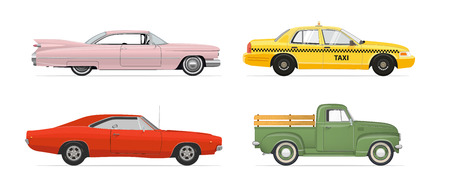Overview of India’s Used Car Market
The Indian used car market has witnessed tremendous growth over the past decade, becoming one of the fastest-growing segments in the country’s automotive industry. With rising urbanisation and a growing middle class, more people are considering pre-owned vehicles as a practical and budget-friendly option. As per recent industry reports, the size of India’s used car market is now nearly double that of the new car market, with sales expected to cross 8 million units annually in the coming years.
This robust expansion is driven by several factors, such as increased affordability, better financing options, improved transparency, and higher quality assurance provided by organised dealerships. The emergence of digital platforms and online marketplaces like Cars24, OLX Autos, and Spinny has further transformed how Indians buy and sell used cars. These platforms offer detailed vehicle histories, inspections, and hassle-free transactions, making the process more trustworthy for both buyers and sellers.
Additionally, changing consumer mindsets towards owning pre-owned cars—once considered a stigma—has contributed to this shift. Urbanisation plays a crucial role too; with expanding cities and longer commutes, many first-time buyers prefer used cars to meet their mobility needs without stretching their finances. Overall, the used car market in India is not just growing in numbers but evolving in quality and reliability, setting the stage for a deeper analysis of resale value differences between Indian and foreign brands.
2. Resale Value Fundamentals in India
When it comes to buying or selling a car in India, understanding the key factors that affect resale value is essential for both first-time buyers and seasoned vehicle owners. The Indian used car market operates differently from many other countries, with unique influences shaping how much a car is worth after a few years of use. Here are the main aspects to consider:
Brand Perception
Indian buyers place significant trust in established brands, especially those known for reliability and affordability. Cars from manufacturers like Maruti Suzuki, Hyundai, and Tata Motors generally enjoy higher resale values due to their positive reputation and widespread service network. On the other hand, lesser-known foreign brands may struggle in the resale market unless they have built strong credibility over time.
Comparison of Brand Perception and Its Impact on Resale Value
| Brand Category | Common Examples | Resale Value Trend |
|---|---|---|
| Popular Indian Brands | Maruti Suzuki, Tata Motors, Mahindra | High resale value due to trust and low maintenance cost |
| Foreign Mainstream Brands | Hyundai, Honda, Toyota | Moderate to high resale value depending on service network |
| Luxury Foreign Brands | Audi, BMW, Mercedes-Benz | Lower resale value due to high maintenance costs and limited buyers |
Maintenance Costs & Spare Parts Availability
The Indian market heavily favours cars that are economical to maintain. Vehicles with readily available and affordable spare parts retain better value as buyers look for hassle-free ownership. Indian brands and some foreign manufacturers with local assembly plants tend to have an edge here, as imported spares for niche models can be expensive and hard to source.
Factors Affecting Maintenance Costs in India
- Service Network Coverage: Extensive networks mean easier access to repairs.
- Part Localisation: Locally manufactured parts are more affordable than imported ones.
- Labour Charges: These vary between cities but are generally lower for common models.
Driving Conditions & Usage Patterns
The diverse driving conditions in India—ranging from crowded city streets to rough rural roads—impact a car’s wear and tear. Cars designed for Indian conditions or those with robust suspension systems usually command higher resale prices. Additionally, mileage is a critical factor; cars driven mostly within city limits or under challenging road conditions tend to depreciate faster than those primarily used on highways.
Summary Table: Key Factors Shaping Resale Value in India
| Factor | Description/Impact on Resale Value |
|---|---|
| Brand Reputation | Trusted brands fetch higher resale values due to perceived reliability. |
| Maintenance Cost | Cars with low upkeep retain value better; high-cost luxury vehicles depreciate faster. |
| Spares Availability | Easily available parts improve resale prospects; rare spares reduce demand. |
| Mileage & Usage Type | Low-mileage and well-maintained vehicles sell at a premium. |
| Adaptability to Indian Roads | Cars suited for local conditions hold value longer. |
The interplay of these factors means that while both Indian and foreign cars can be good investments, their long-term value depends largely on how well they fit into the local context—making it crucial for buyers to assess these fundamentals before making a purchase decision.

3. Indian Brands: Performance and Perception
When it comes to resale value and the used car market in India, homegrown brands like Maruti Suzuki, Tata, and Mahindra hold a special place. Maruti Suzuki, often called the “people’s car,” is widely recognised for its affordable maintenance, robust after-sales network, and fuel-efficient models. This reputation translates into consistently high resale values across both metropolitan areas and smaller towns.
Strong Resale Value in Tier-2 & Tier-3 Cities
Indian brands have an edge especially in Tier-2 and Tier-3 cities where buyers prefer reliability and ease of maintenance over luxury or imported features. Tata Motors, with its recent focus on build quality and safety (as seen in models like Nexon and Altroz), has steadily improved its brand image. As a result, Tata vehicles are now considered trustworthy options with decent resale value, appealing to families looking for durable cars at reasonable prices.
Mahindra: Ruggedness Meets Utility
Mahindra vehicles, such as the Bolero and Scorpio, enjoy immense popularity in semi-urban and rural markets thanks to their rugged build and versatility. These models are known for handling rough roads and heavy usage, making them a favourite among farmers, small business owners, and transport operators. Their reliability ensures that used Mahindra cars are always in demand, driving up their resale values compared to many foreign counterparts.
Cultural Perception Favouring Local Brands
The perception that Indian brands offer better value for money, lower running costs, and easier access to spare parts plays a significant role in their dominance of the used car market. In fact, buyers in smaller cities often trust local brands more due to familiarity with service centres and mechanics who specialise in these vehicles.
Overall, the performance of Indian brands in the resale market is a testament to their alignment with local preferences—affordability, practicality, and long-term dependability—which continues to strengthen their position against foreign competitors across India’s diverse automotive landscape.
4. Foreign Brands: Prospects and Challenges
When considering resale value and the used car market in India, foreign brands like Honda, Hyundai, Toyota, Ford, and Volkswagen present a unique dynamic. These international manufacturers have established a significant presence in India, but their prospects in the used car segment are shaped by several key factors.
Consumer Perception of Foreign Brands
Foreign cars are often perceived as aspirational and premium by Indian buyers. Brands such as Toyota and Honda are associated with reliability, advanced features, and superior build quality. Hyundai is known for its modern design and extensive network, while others like Ford and Volkswagen attract enthusiasts looking for better driving dynamics. However, there is also a perception that maintenance costs may be higher compared to Indian brands.
After-Sales Service and Network
One of the biggest challenges foreign brands face in India’s used car market is the reach of their after-sales service network. While Hyundai and Toyota have built extensive service centers across urban and semi-urban areas, some brands like Ford (which has ceased new car sales in India) struggle with limited service options. This directly impacts buyer confidence when purchasing these brands second-hand.
Depreciation Trends: A Comparative Table
| Brand | Initial Price (₹ Lakhs) | 5-Year Resale Value (%) | Market Demand (High/Medium/Low) | Service Reach |
|---|---|---|---|---|
| Toyota | 8-40 | 60-70% | High | Excellent |
| Honda | 7-18 | 55-65% | Medium-High | Good |
| Hyundai | 6-25 | 55-65% | High | Excellent |
| Ford* | 7-20 | 40-50% | Low-Medium | Poor* |
| Volkswagen | 8-22 | 45-55% | Medium | Satisfactory |
*Note: Ford stopped selling new cars in India in 2021, impacting long-term service availability.
Main Challenges for Foreign Cars in Indian Used Market
- Spares & Maintenance: Perceived or real higher costs for parts and service make some buyers hesitant.
- Lesser Rural Penetration: Service centers for foreign brands are mainly concentrated in cities.
- Depreciation Rate: Some foreign models depreciate faster if discontinued or if brand exits India.
The Bottom Line for Buyers and Sellers
If you’re considering buying a used foreign brand car in India, focus on models from brands with strong local support like Toyota or Hyundai. These hold their value well and ensure peace of mind regarding future maintenance. On the other hand, rare or recently discontinued brands may offer attractive prices but come with potential challenges in terms of servicing and spare part availability.
5. Cultural & Regional Factors Impacting Resale
When analysing the resale value of Indian vs foreign cars, one cannot overlook the profound impact of cultural and regional factors unique to the Indian automotive market. Local preferences play a significant role in shaping demand. For instance, many Indian buyers still prefer hatchbacks and compact sedans for city driving, favouring brands with strong after-sales service networks like Maruti Suzuki and Hyundai. These preferences directly influence higher resale values for such models compared to less popular foreign brands.
Fuel type is another crucial consideration. In metros and Tier-1 cities, there is a growing tilt towards petrol and CNG vehicles due to stricter emission norms, while diesel vehicles are more popular in rural areas for their better fuel efficiency and lower running costs. This urban-rural divide means that a diesel SUV may fetch a better resale price in Punjab or Haryana, whereas a petrol hatchback holds its value better in Mumbai or Bengaluru.
The regional market demand also varies widely across states. Cars with higher ground clearance and robust suspension are preferred in regions with rough terrain, such as North-East India or semi-urban areas, boosting their resale value locally. In contrast, automatic transmission vehicles command a premium in metros where traffic congestion is a daily struggle.
An interesting aspect unique to India is the influence of religious festivals on used car sales. During auspicious periods like Diwali or Dussehra, demand for both new and pre-owned vehicles spikes as people believe it brings good luck to make purchases during these times. Sellers often get better prices if they time their sale around these festivals.
Finally, the difference between rural and urban dynamics cannot be ignored. Urban buyers often seek cars loaded with features and modern designs—traits commonly found in foreign brands—while rural customers prioritise durability, easy maintenance, and affordability, tilting the balance in favour of established Indian manufacturers when it comes to resale value.
Together, these cultural nuances and regional dynamics explain why certain car types hold their value better than others within specific segments of India’s diverse used car market.
6. Tips for Maximizing Resale Value in India
Whether you are buying or selling a car in India, getting the best resale value is always a priority. The Indian used car market is highly competitive, and factors like brand reputation, maintenance history, and documentation play a crucial role in determining the final price. Here are some practical tips to help both buyers and sellers maximize the resale value of their cars, with insights specific to Indian conditions.
Maintain Regular Servicing and Upkeep
Routine maintenance is one of the key drivers for higher resale value. Make sure to follow the manufacturer’s recommended service schedule at authorized service centres. Regular oil changes, brake checks, and timely replacement of consumables ensure your car remains in good mechanical condition—a point Indian buyers often look for during negotiations.
Keep All Documentation Up-to-Date
Indian buyers place significant importance on proper paperwork. Ensure you have all essential documents in order: RC (Registration Certificate), insurance papers, PUC (Pollution Under Control) certificate, service records, and any loan closure NOCs if applicable. A well-documented history gives confidence to buyers and fetches better offers.
Avoid Over-the-Top Modifications
While some modifications like alloy wheels or infotainment upgrades are popular in India and can add value, avoid over-customization or non-standard modifications. Loud exhausts, flashy paint jobs, or unauthorized LPG/CNG kits may actually lower resale value as they could raise concerns about insurance claims or vehicle integrity.
Choose Popular Colours and Variants
In the Indian market, neutral colours like white, silver, and grey are more sought after as they appeal to a wider audience. Similarly, petrol variants and automatic transmissions are gaining popularity in metro cities. Opting for these can make your car easier to sell at a better price later.
Keep Mileage in Check
Excessive mileage is a red flag for most used car buyers in India. Try to keep your running within average limits—generally under 15,000 km per year for petrol cars and 20,000 km per year for diesel cars. Lower mileage not only preserves the vehicle’s mechanical health but also positively impacts its perceived value.
Present Your Car Well During Sale
First impressions matter. Before listing your car for sale, invest time in professional cleaning, polishing, and minor repairs like dent removal or seat cover replacement. A clean and well-presented car signals to potential buyers that it has been cared for—a factor highly valued in the Indian used car market.
Conclusion
By following these practical steps tailored to Indian conditions—from regular servicing to smart presentation—you can ensure your vehicle retains its maximum resale value. Whether dealing with an Indian or foreign brand, attention to detail and proper documentation will always put you ahead in the competitive Indian used car market.


